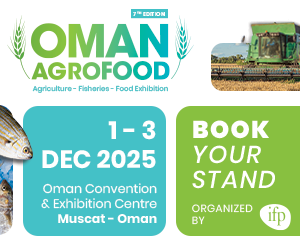Dhahirah Governorate is experiencing steady agricultural progress thanks to the continued expansion of the Model Commercial Farms program, an initiative launched by the Ministry of Agriculture, Fisheries and Water Resources (MAFWR) in 2020.
According to data from the Directorate General of Agricultural and Water Resources, by mid-2025 more than 250 model farms have been established across the governorate’s wilayats, spanning a total area of over 140 acres.
As part of this program, approximately 9,000 tissue-cultured date palm saplings and 6,000 seedlings of various fruit trees—including mango, Omani lemon, guava, fig, and grape—have been distributed to farmers.
The initiative aims to strengthen the agricultural sector by developing organized, economically viable farms that utilize modern irrigation technologies. Adoption of these methods is a core requirement for participation, as they support water conservation and enhance production efficiency.
Program officials noted that the initiative is playing a vital role in promoting sustainable agricultural practices, bolstering food security, and improving farmers’ livelihoods. Alongside the provision of high-quality plant varieties, MAFWR continues to deliver technical guidance and advisory services to ensure long-term productivity and economic benefits.
The success achieved in Dhahirah is serving as a model for similar projects in other regions, aligning with the ministry’s strategic plan to advance Oman’s agricultural sector.
In related efforts, the Directorate General of Agriculture, Fisheries and Water Resources in Dhahirah issued 1,462 water licenses in 2024, covering a broad range of water-related activities across the wilayats.
These licenses include approvals for building and maintaining dams and aflaj, implementing development projects, drilling new and replacement wells, deepening and cleaning existing wells, and carrying out water reuse initiatives. Additional licenses were granted for issuing inventory certificates, replacing inventory plates, and extending water pipelines from wells.
Officials underscored that this licensing process is critical for the sustainable management of water resources and supports the national strategy to safeguard water security in line with Oman’s broader sustainable development objectives.
Source: Muscat Daily



















































































